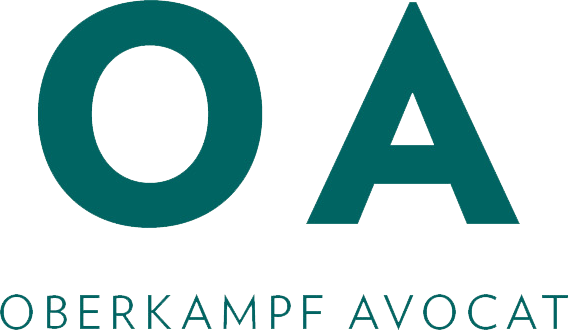Key highlights from March 2025 in the sustainability space.
1- Japan publishes IFRS-aligned Sustainability Disclosure Standards
On March 5, the Sustainability Standards Board of Japan announced the issuance of its inaugural sustainability disclosure standards. The standards are aligned with the International Sustainability Standards Board’s IFRS Sustainability Disclosure Standards and have been published in three parts:
(1) Universal Sustainability Disclosure Standard “Application of the Sustainability Disclosure Standards”
(2) Theme-based Sustainability Disclosure Standard No. 1 “General Disclosures”
(3) Theme-based Sustainability Disclosure Standard No. 2 “Climate-related Disclosures”
The first two correspond to IFRS S1, while the “Climate-related Disclosures” standard corresponds to IFRS S2. As all three are expected to be applied together, this difference in form should not lead to substantive discrepancies in the disclosures.
Overall, the standards, which are expected to form the basis of mandatory reporting of sustainability and climate-related information for Prime Market-listed companies on the Tokyo Stock Exchange, represent an important step towards internationally aligned sustainability reporting requirements.
2- US EEOC publishes new guidance on DEI at work
On March 19, the U.S. Equal Employment Opportunity Commission and the U.S. Department of Justice (DOJ) released two documents focused on “educating the public about unlawful discrimination related to “diversity, equity, and inclusion” (DEI) in the workplace.”
In the new guidance, the EEOC recognises that DEI initiatives have become more prevalent in the “past five years” since the end of President Trump’s last term and states that the widespread adoption of such initiatives “does not change longstanding legal prohibitions against the use of race, sex, and other protected characteristics in employment.”
Accordingly, the published technical assistance documents state that DEI-related discrimination can appear by “limiting, segregating and classifying” workers or engaging in harassment or retaliation based on sex or race. The guidance specifically mentions “unlawfully using quotas or otherwise ‘balancing’ a workforce by race, sex, or other protected traits,” and notes that disparate treatment is illegal in relation to hiring, firing, promotion, demotion, compensation, benefits, exclusion from training, fellowships or mentorship/sponsorship programs and selection for interviews. The stated illegality of “exclusion from training or mentorship programs” based on DEI considerations indicates that the agency may look beyond substantive employment procedures and target support programs not directly bearing on employment decisions.
3- SBTi launches consultation on initial draft of new Corporate Net-Zero Standard
On March 18, the Science Based Targets Initiative published the initial draft of the second version of its Corporate Net-Zero Standard, and launched a consultation on this that will stay open until the 1st of June. The draft is proposed to update the organisation’s key standard to assess, certify and track companies’ decarbonisation commitments to achieve net zero emissions and to support science-based climate target setting.
Key updates in the draft include a distinction between scope 1 and scope 2 decarbonisation, the introduction of new options for tackling scope 3 emissions such as setting targets for green procurement and revenue generation instead of emissions reduction targets, opportunities to scale carbon removals, and simplified requirements for medium-sized companies in developing markets and SMEs.
The SBTi has confirmed that a “comprehensive transition pathway” will be developed to ensure a smooth transition from the existing standards to the new ones once the second version is finalized.
4- Canada’s Prime Minister eliminates consumer carbon tax
On March 14, Canada’s new prime Minister Mark Carney signed an order eliminating a consumer carbon tax, effective from April 1. Introduced in 2019, the tax, also called the “fuel charge”, introduced a price on carbon for businesses and consumers in order to incentivise emission reductions. While the consumer carbon tax has been scrapped, effective April 1, the business tax remains.
The Prime Minister, with a strong track record in both finance and sustainability, had originally supported the carbon pricing scheme but now believes that the policy has become "too divisive." The controversy surrounding the tax is primarily due to the high inflation experienced by Canadians in the years since its implementation.
5- World Nuclear Association publishes coalition pledge to triple global nuclear energy by 2050
On March 12, a coalition of fifteen major corporations including Google, Amazon and Meta signed a pledge supporting the goal of at least tripling nuclear capacity around the world by 2050. Other signatories include global banks, financial institutions, energy companies and heavy industry conglomerates. The initiative, led by the World Nuclear Association, is said to mark the first time businesses outside the nuclear sector have publicly backed such a large-scale expansion of atomic power to meet their energy needs.
The pledge calls on governments to mobilise investment in nuclear power and support the development and construction of nuclear reactors including small modular reactors and advanced reactors. It is motivated by corporations’ expectation that their energy needs will increase in the next 25 years due to rising demand from AI data centers, electric vehicles, and industrial electrification.
- Content prepared with the help of Defne Fresko Tasci.
